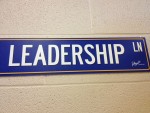 The IR program in partnership with IRSA are looking to significantly enhance our orientation programming for September 2015 in order to build a stronger community of IR students. In order to do so, we are putting together a volunteer student committee to plan and execute the program. This is a great opportunity to enhance your skill set and welcome a new group of IR students to the program.
The IR program in partnership with IRSA are looking to significantly enhance our orientation programming for September 2015 in order to build a stronger community of IR students. In order to do so, we are putting together a volunteer student committee to plan and execute the program. This is a great opportunity to enhance your skill set and welcome a new group of IR students to the program.
Please find the volunteer position description attached. All interested applicants should submit a resume and cover letter to irmajor.program@ubc.ca by 11:59pm on March 3rd, 2015.
In your one-page cover letter please:
- outline how you meet the qualifications below
- indicate which role from below (Marketing and Communications, Finance and Logistics, Content and Evaluation) you are most interested in and what skills you would bring to that role.
- Describe one creative idea you have for the Orientation
IR Orientation Leader Position
Duties
The IR Orientation Team Leaders are expected to work with a committee of student leaders to plan and execute all aspects of the IR Orientation program for 2015. All IR Orientation Team Leaders will also provide feedback on ways to improve the programming in the future.
All Leaders are expected to take part in the overall planning of the program and the content. Each individual will also be assigned a specific area of responsibility as determined by the team with categories such as the following:
- Marketing and Communications – marketing strategy and content, web and email communications, media relations, day of print materials, swag, sponsorship, liaison with IRSA, etc
- Finance and Logistics – budget, location, accommodation, scheduling, catering, transportation, registration, etc
- Content and Evaluation – sourcing speakers and session content based on the priorities of the team, determining volunteer needs, preparing and analysing program evaluation materials, etc
Expected Time Commitment
- Initial committee meeting, mid-March
- Committee training sessions (2) mid to late -March
- Full-day planning session late March/early April (further timeline/tasks set)
- March Welcome Orientation, Saturday March 28, 2015 (for all UBC Orientations & Transition Leaders)
- March-April: Bi-weekly meetings
- Additional training sessions for role in early September 2015 (likely September 5-7).
- Maintain regular contact (via email, in person meetings, etc.) during the summer with the committee and IR staff with updates on task completion and timeline
- IR Orientation September 11th and 12th, 2015
- Debriefing meeting in September 2015
Qualifications
All IR Orientation team leaders should have the following qualifications:
- Able to commit to and follow through with all IR Orientation Leader required dates and expectations as outlined above.
- Current undergraduate student in the International Relations Major (must be a student in the program until December 2015).
- Recognizes the importance of their role as a positive role model and representative of UBC and the Faculty of Arts
- Demonstrated leadership skills.
- Excellent organizational, communication, and interpersonal skills.
- Demonstrated ability to adapt to new and challenging experiences with positive mind-set.
- Ability and willingness to work independently and as part of a team with students, volunteers, and staff.
- Knowledge of opportunities that IR students can get involved with.
- Being flexible and adaptable to programming changes that may occur.
- Creative and critical thinking abilities
- Previous experience with UBC Orientations as a Leader is an asset but is not required.
Skills and Experiences to be enhanced through your involvement as an IR Orientation Leader:
- Facilitation skills (leading a group of 10-15 peers, assisting with facilitation of different events and sessions etc).
- Written and oral communication skills (email correspondence, public speaking, etc).
- Time management and organization skills.
- Active listening skills and awareness of the needs of students in transition.
- Problem–solving and trouble-shooting experience.
- Experience working with diverse teams, including peers, staff, and faculty.
- Exploration and reflection of personal leadership style, including strengths and opportunities, through training, coaching and mentoring with professional staff.
Picture by rrafson (Own work) [CC BY-SA 3.0 (http://creativecommons.org/licenses/by-sa/3.0)], via Wikimedia Commons